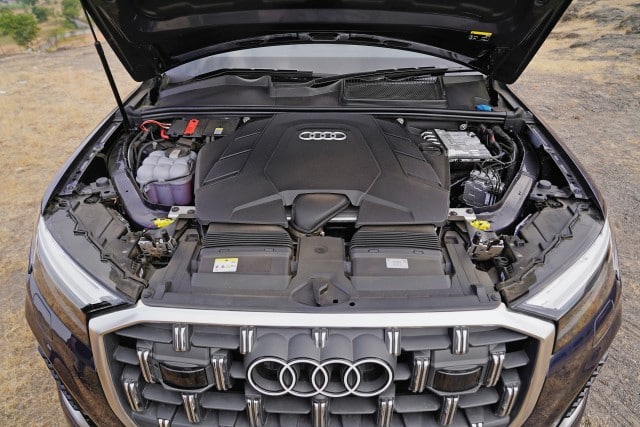
Getting on the move, the Audi Q7 55 TFSI quattro has enough go from the six-cylinder turbo-petrol powertrain with a 48-volt mild-hybrid system. The 3.0-litre V6 TFSI engine is the tried and tested powertrain of all large Audi models in India and, while it serves up 340 hp and 500 Nm, it limits the choice for potential buyers with rival premium German brands offering petrol, diesel, and even plug-in hybrid premium luxury models. The maximum torque peaks on paper at 1,370 rpm but at that speed the peak power is just about getting its shoes on. It’s only after 2,000 rpm that the surge on tap begins to feel evident. Let’s be honest, the 45 TDI and 50 TDI turbo-diesel powertrains in Europe and other global markets may be facing flak and repercussions from days gone by, but there is no substitute for the raw low-end grunt a diesel can deliver. And we’ve had the 45 TDI quattro in India earlier. Alas, such is the present time.
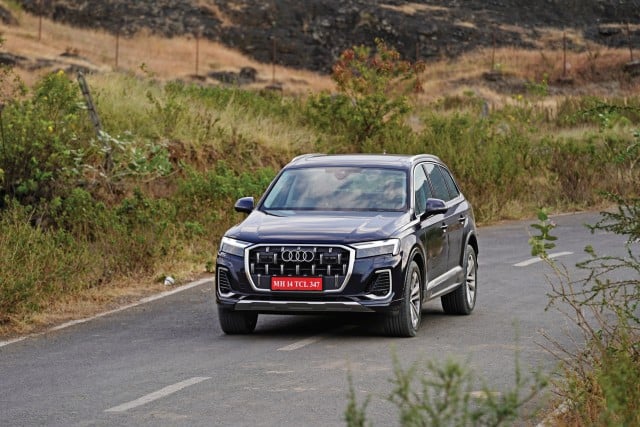
The eight-speed tiptronic automatic, a fluid-coupling with electronically controlled manual mode, makes for decent driving pleasure and is very capable of transferring the power to the proprietary quattro all-wheel-drive system which smartly splits it between the front and rear axles. With that, the brakes, and the steering set-up, there is a sure-footed feel the Q7 offers which delivers on all counts when driving dynamically. It can sprint from zero to 100 km/h in just 5.6 seconds. Also, the drive modes—efficient, comfort, dynamic, and auto, apart from offroad and individual—all help eke out the most from this 2.1-tonne full-size SUV. On the sole downside, there is a perceptible lag when trundling along behind a slow-moving vehicle and the need to overtake arises. Furthermore, the engine and weight combination make for a city figure of about five kilometres to the litre with nine on the highway leading to an overall six. With the 85-litre tank, that should be good for about 550 km overall and a lot more if more highway driving is involved.
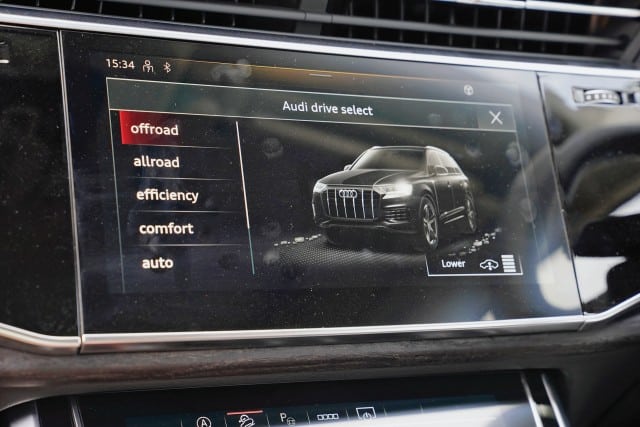
That said, the 48-volt mild-hybrid system helps. When coasting at anywhere between 55 and 160 km/h, it can maintain momentum even with engine turned off . There is also an extended start/stop mode from 22 km/h as the vehicle is stopping. Releasing the brake pedal entirely makes for an instant switch back to drive mode from this extended start-stop mode. There are other electronic goodies to help on the highway with the cruise control and the speed-limiter function as well. Useful stuff, but it’s not the same as an adaptive cruise control system backed by autonomous assistance.
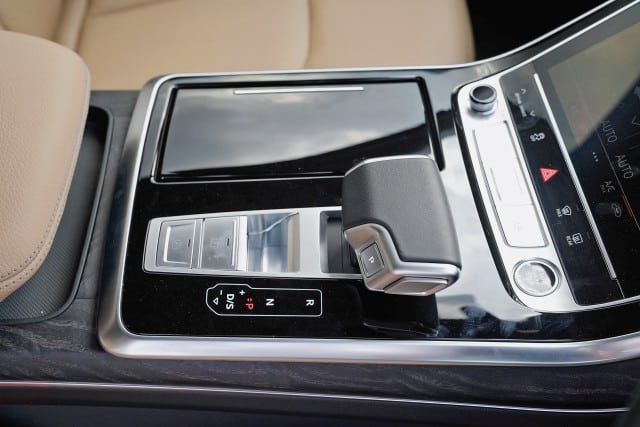
The Audi Q7 is priced from Rs 88.66 lakh, but this Technology variant costs Rs 97.81 lakh (ex-showroom) at the time of writing. Even so, it seems fair for what is on offer. Yes, the Audi Q7 is a massive car, a studio apartment on wheels, almost, minus the bathroom. Yet it shrinks around you and behaves like a much smaller car. It still is a fantastic all-rounder to have in town, around it, and everywhere else. I may have gripes about the V6 petrol being the only engine option and, as much as I would have liked to see the 45 TDI diesel or, better still, the 50 TDI diesel and 55 TFSI e plug-in hybrid petrol—all of which are available in Europe and global markets—this one does a fine job in providing motive force to what is, overall, an extremely capable package for all sorts of uses.
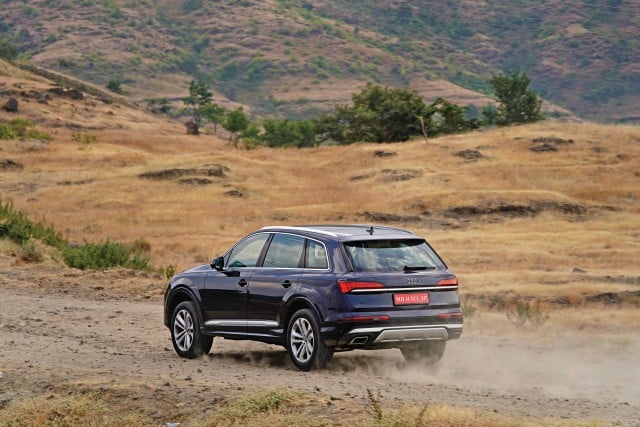
Story: Jim Gorde
Photography: Sanjay Raikar


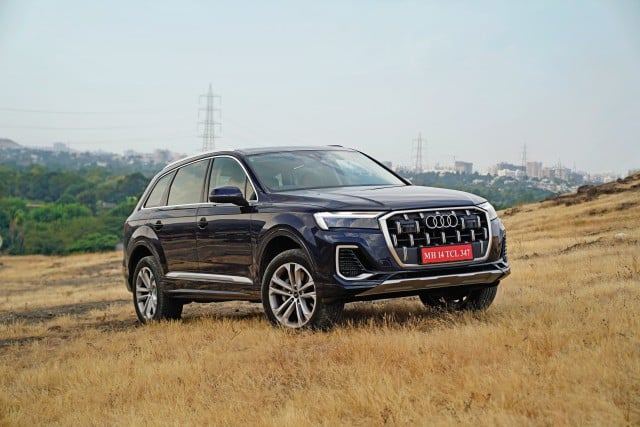

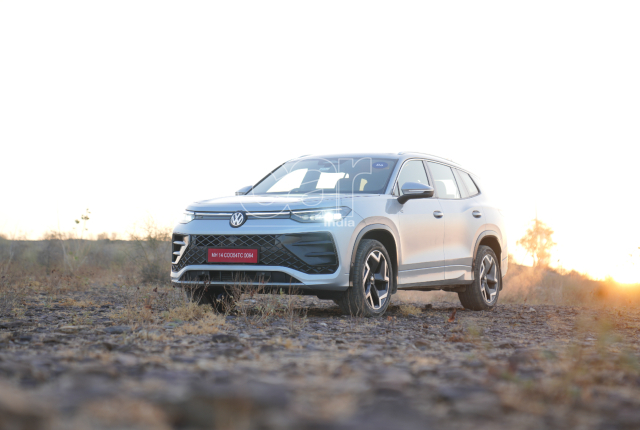

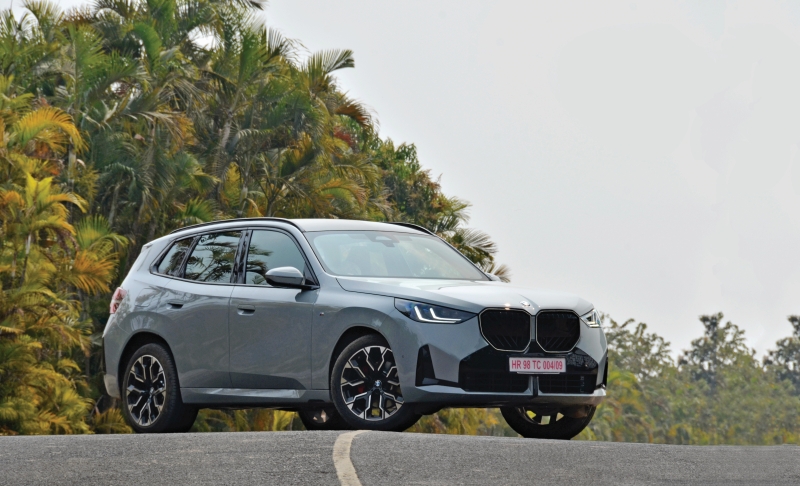


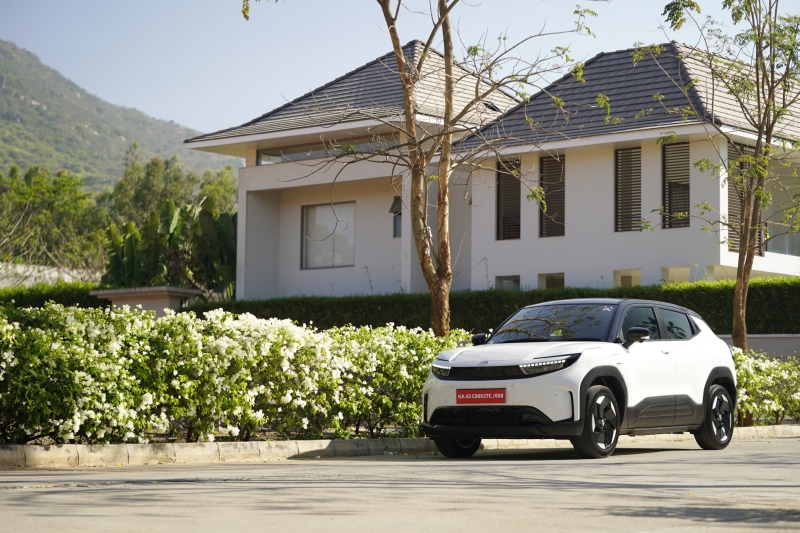
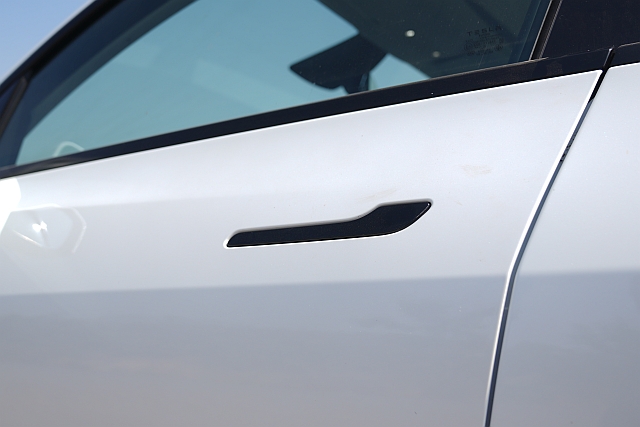
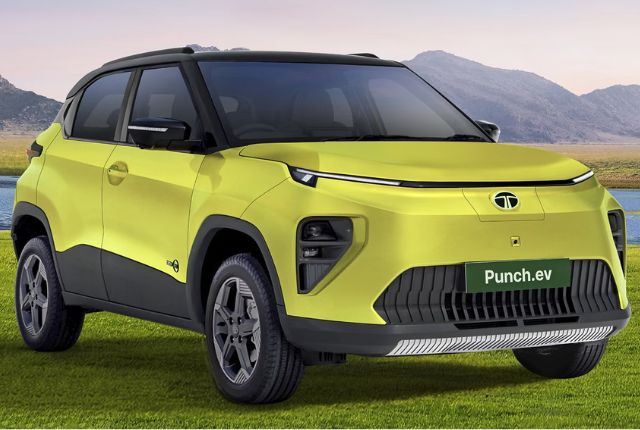
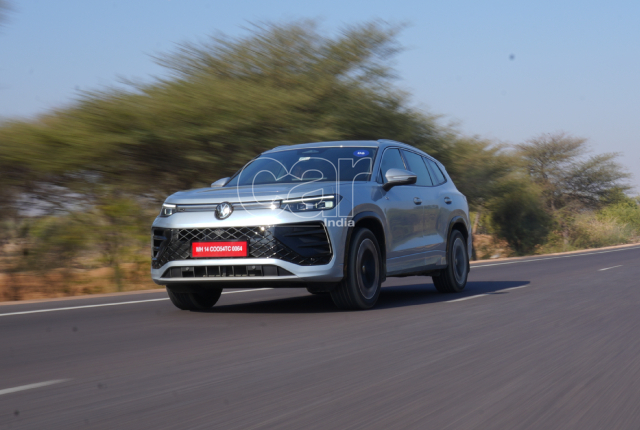
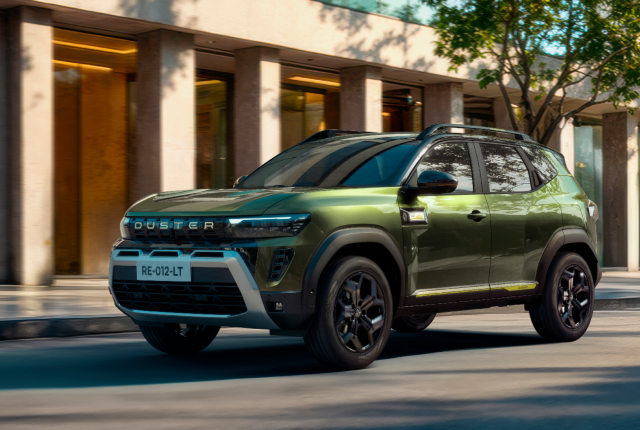

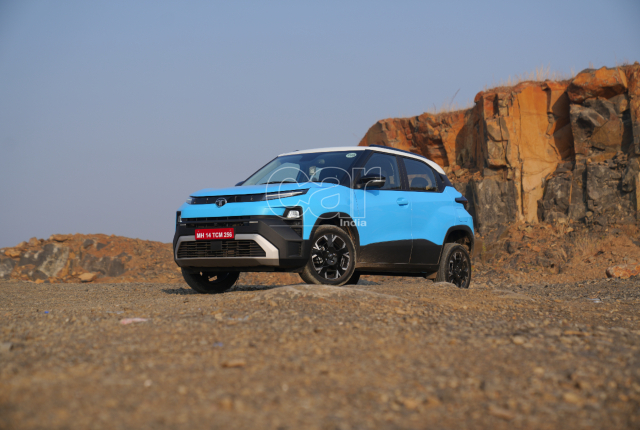
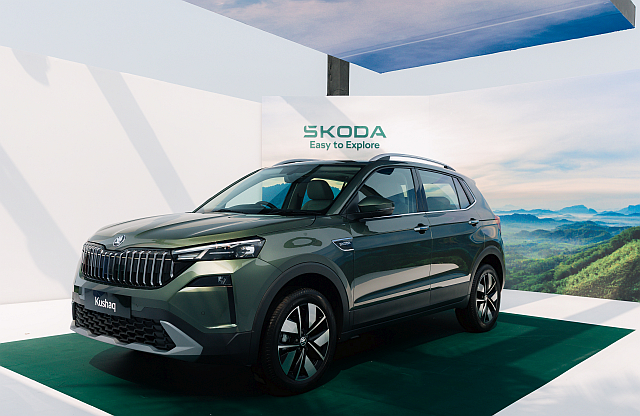
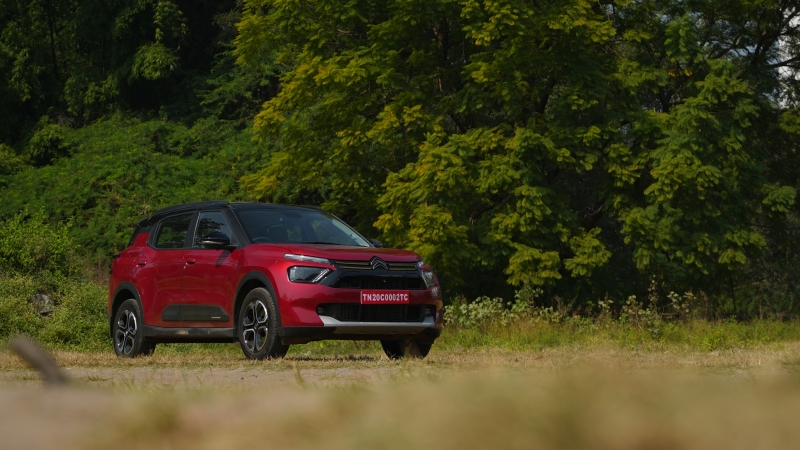
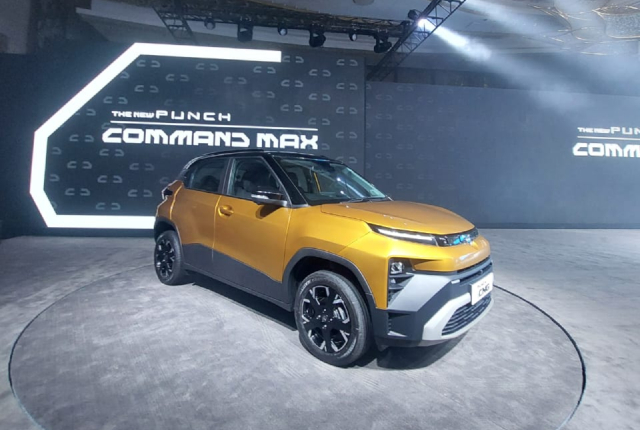
Leave a Reply